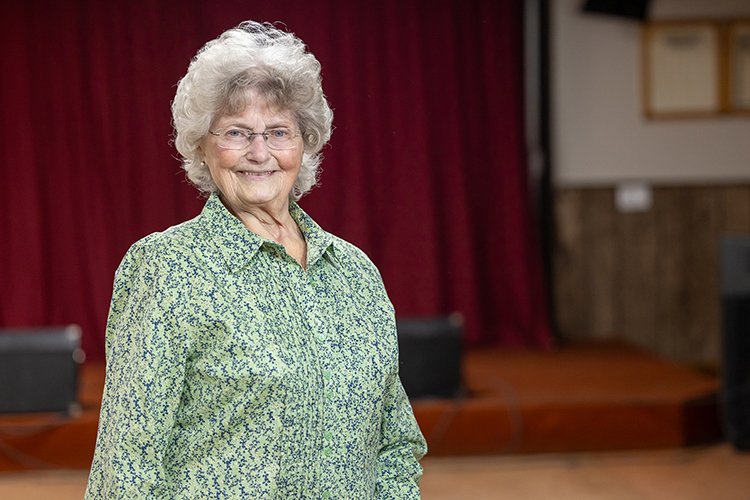Extremely Grateful for Specialized Heart Valve Treatment

Dancer, Gardener, TAVR Patient
"I was very impressed with the care I received from my cardiology and physical therapy teams."
Aortic Stenosis (AS) is a disease that narrows the opening of the heart’s aortic valve. Under this condition, the heart must work harder to pump blood to the aorta – the body’s main artery. If left untreated, severe AS increases a person’s risk for heart failure and is a life-threatening condition. Treatment for severe AS involves replacing the aortic valve and generally requires open heart surgery. For some patients, however, a less invasive procedure known as transcatheter aortic valve replacement (TAVR) is an option. For 85-year-old Kathy Filcek it was the perfect option to help her heart function more efficiently, increase the blood flow to her body, and return her to an active lifestyle.
A weekly dancer and regular gardener, Filcek became worried when she began getting winded on short walks. Even a simple trip to the mailbox tuckered her out and left her short of breath. After a stress test and electrocardiogram (EKG) revealed an issue with her aortic valve that could not be controlled with medication, she was referred to Structural Heart Specialist and Interventional Cardiologist Omar Ali, M.D., at MyMichigan’s Heart and Vascular Center in Midland.
“Signs and symptoms of severe AS may include chest pain or tightness, feeling faint or fainting with activity, dizziness, fatigue, shortness of breath, irregular heartbeat or an unusual sound during a heartbeat,” said Dr. Ali.
According to Filcek, her father had heart issues. “When I was experiencing that extreme shortness of breath, I had a feeling it was going to require the expertise of someone like Dr. Ali. He saved my life.”
Dr. Ali determined that Filcek would be a good candidate for the TAVR procedure. This minimally-invasive procedure is designed to treat aortic stenosis in patients who are high-risk or too sick for surgery. During the procedure an artificial aortic valve is inserted through an artery in the neck, leg or between the ribs, and placed inside the diseased valve while the heart is still beating. The treatment is proven to consistently lengthen a patient’s life and improves their quality of life.
“I was very impressed with the care I received from my cardiology and physical therapy teams,” said Filcek. “Everyone was wonderful, from the person who checked me in to the doctors and therapists. Things were explained to me clearly and I could ask questions at any time. I had never been in a gym. Working with the rehab staff was fantastic; I could feel my muscles strengthening. I still do it, and it continues to help me.”
Filcek shared that she has friends who live near her in Midland who have also been complimentary of care they have received at MyMichigan. She knows it was the right choice for her. “I want my time left with my daughter, grandchildren and great-grandchildren to be quality time. I believe Dr. Ali and my care team have added to it, and I’m extremely grateful.”
Those who would like more information about TAVR and MyMichigan’s Structural Heart Clinic may visit www.mymichigan.org/structuralheart.